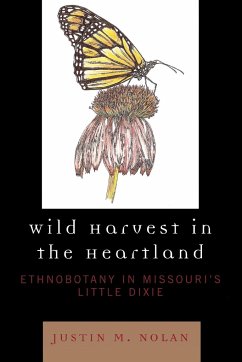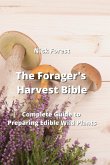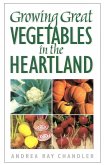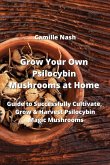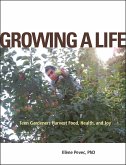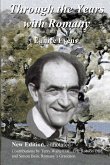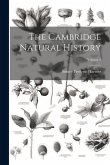This work is a detailed study of people and plants in Little Dixie, a seven-county region of central Missouri. Based on three summers of field research, Professor Nolan combines ethnoscience with folklore to document what and why people know about wild plants in this little-known section of the American Midwest. The book is organized around the cognitive and behavioral differences between local experts and 'novices' who gather wild plant foods and medicines regularly throughout the seasons in Little Dixie. Ethnobotanical knowledge is described as an ongoing interaction between ecology and cognition, under constant modification by shifting cultural beliefs about edibility, efficacy, and sensory appeal. As consumable resources and symbols of belonging, wild plants are detailed with ethnographic context and vivid pen-and-ink sketches. Wild Harvest in the Heartland will appeal to a broad audience of anthropologists, ethnobotanists, folklorists, and ecologists, and will provide a welcome resource for naturalists, conservationists, and outdoor enthusiasts.
Hinweis: Dieser Artikel kann nur an eine deutsche Lieferadresse ausgeliefert werden.
Hinweis: Dieser Artikel kann nur an eine deutsche Lieferadresse ausgeliefert werden.
This short, compact study is a model of ethnobotanical research, and I highly recommend it for classroom use. Nolan hardly wastes a word. He states the theory, methodology, and major findings clearly and straightforwardly, and thus can get an astonishing amount of data into a hundred pages. The simple, accessible prose quickly gives way to highly sophisticated, mathematicized analysis. Journal Of Ethnobiology, Spring/Summer 2008 Ethnobotany, all too often, focuses on traditional, non-industrialized societies; this book draws our attention to natural resource knowledge in our own backyard. Nolan has produced a well-researched vision of ethnobotany of Little Dixie-famous for its antebellum plantation history-in the Missouri heartland, which simultaneously addresses global issues. Human Ecology, 15 July 2009 This work is valuable for ethnobotanists, folklorists, and anthropologists... Recommended. CHOICE A very nice little book...Nolan has produced a well researched vision of ethnobotany of Little Dixie-famous for its anti-bellum plantation history-in the Missouri heartland, which simultaneously addresses global issues. -- July 15, 2009 Human Ecology This short, compact study is a model of ethnobotanical research, and I highly recommend it for classroom use. Nolan hardly wastes a word. He states the theory, methodology, and major findings clearly and straightforwardly and thus can get a large amount of data into a hundred pages. -- E.N. Anderson, University of California

